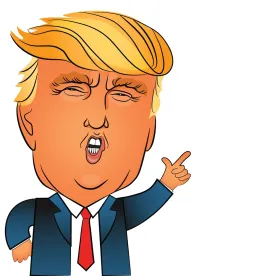Overview
After a conventional presidential campaign, determining the policy priorities and direction of the incoming administration with respect to the Justice Department’s white collar law enforcement responsibilities can be a relatively straightforward process. Confident prediction this election year, however, is tempered by the lack of comprehensive Trump Administration policy releases addressing these issues. And, as history has shown, even a clear articulation of new law enforcement priorities can be overtaken by events – recall Attorney General Ashcroft’s pledge to focus the Justice Department on prosecuting pornographic obscenity, which was quickly obviated by the September 11 attacks.
Notwithstanding these challenges, President-elect Trump’s announcement of Alabama Senator Jeff Sessions as his choice for Attorney General provides the basis for a forecasting model. We can look to Senator Sessions’ public positions in Congress and his previous work as both a federal prosecutor and state Attorney General for guidance as to how he might shape the Justice Department’s approach to white collar crime.
The following summarizes positions taken by Senator Sessions as a prediction of how a Justice Department led by him may set law enforcement priorities in eight white collar areas: (1) Foreign Corrupt Practices Act (“FCPA”) & International Bribery; (2) Anti-Money Laundering & Asset Forfeiture; (3) Securities Enforcement / Financial Fraud; (4) Cyber & National Security; (5) Pharmaceutical Regulation & Compliance; (6) OFAC & Export Control; (7) False Claims Act (“FCA”) & Healthcare Fraud; and (8) Legalized Cannabis.
Biography
Jeff Sessions graduated from the University of Alabama School of Law in 1973. After private practice, Sessions served as an Assistant United States Attorney for the Southern District of Alabama from 1975 to 1977. In 1981, President Reagan appointed Sessions to be the United States Attorney for the Southern District of Alabama, a position he held until 1993. Sessions later served as Alabama’s Attorney General from 1995 until 1997, when he was elected to represent Alabama in the United States Senate. In the Senate, he has focused primarily on issues related to immigration, national security, criminal justice and the federal budget. Senator Sessions has served on several committees, most notably as a long-time member of the Judiciary Committee. He was the first Senator to endorse Donald Trump for President and served as the chairman of the Trump campaign’s national security advisory committee.
White Collar Crime Generally
A Sessions-led Justice Department is likely to maintain a focus on white collar crime and to build on the Obama Administration’s efforts to prosecute individuals responsible for corporate crime. Senator Sessions has expressed support for prosecuting corporations and individuals in white collar cases and has often referenced his own experiences as a federal and state prosecutor. He appears to consider such prosecutions an effective deterrent against future wrongdoing. Some of Senator Session’s comments suggest that he might be less inclined to resolve investigations of corporate misconduct through non-prosecution agreements (“NPAs”) or deferred prosecution agreements (“DPAs”), and may be more inclined to bring criminal charges in those cases.
-
During a 2015 Senate Judiciary Committee hearing on whether the Justice Department should be prohibited from pressuring corporations to waive attorney-client privilege, Senator Sessions argued against any such rule, noting that prosecutors regularly pressure street criminals to waive constitutional rights using the threat of tougher penalties if they do not cooperate. Senator Sessions said the Justice Department should be able to use similar leverage against corporations. Corporate crime “is not easy to prosecute or investigate. They have the best lawyers that you can find, and they utilize all the legitimate tools that they have,” Senator Sessions said. “[Y]ou have to be strong . . . a prosecutor cannot be a weak-kneed person going up against a major corporation in a fraud case.”
-
In 2010, during Senate Judiciary Committee confirmation hearings for Deputy Attorney General James Cole, Senator Sessions appeared to question whether the Justice Department should consider the collateral consequences of a criminal conviction for a corporation (e.g., Arthur Anderson’s dissolution) in determining whether to bring a case. Senator Sessions said “I was taught if they violated a law, you charge them. If they didn’t violate the law, you don’t charge them.” In a reference to the Justice Department’s investigation into BP over the Deepwater Horizon oil spill, he stated that BP “should be held liable for their responsibilities to the extent of their existence.”
-
At a 2002 Judiciary Committee hearing regarding white collar crime, Senator Sessions stated, “I was a United States Attorney during the Savings and Loan fraud cases. I prosecuted [f]ederal land bank fraud cases. My office prosecuted those cases that I supervised, and I am going to tell you there is a lot better behavior in banking today because people went to jail over those cases in the past. They lost everything they had, their families were embarrassed, and a lot of people started checking to make sure they were doing their banking correctly.”
FCPA & International Anti-Bribery
President-elect Trump has in the past expressed skepticism regarding the FCPA and international anti-bribery enforcement. In a 2012 interview with CNBC, Mr. Trump said that “this country is absolutely crazy” to prosecute alleged FCPA violations in places like Mexico and China. He went on to say that the FCPA is a “horrible law and it should be changed,” adding that it puts U.S. business at a “huge disadvantage.”
With respect to Senator Sessions, it is unclear whether he would maintain the Justice Department’s current high level of FCPA prosecutions, as there is little evidence of his views on international anti-bribery enforcement. Senator Sessions has not commented extensively on the FCPA or the Justice Department’s enforcement of international anti-bribery laws, although he once sought information as to whether enforcement of the FCPA has had a negative impact on the ability of American businesses to compete in foreign countries. Domestically, however, Sessions has sought to expand the Justice Department’s ability to combat bribery and corruption in the United States.
-
In a 2011 Judiciary Committee hearing, Senator Sessions expressed concern over the DPAs and NPAs used to settle FCPA cases. Senator Sessions asked Acting Associate Attorney General Tony West whether DPAs and NPAs “undermine the rule of law by depriving the [Justice Department’s] legal arguments of meaningful testing in a judicial forum.” In the same hearing, he asked whether the Justice Department’s increased FCPA enforcement had an impact “on the competitiveness of American business overseas relative to that of other countries.”
-
In 2010, the Department of Justice asked Congress to restore prosecutors’ power to bring cases against public and private sector officials who conceal conflicts of interest for personal gain. Senator Sessions agreed that a revised statute was needed but argued for the legislation to define specifically what constitutes honest services fraud. “‘Undisclosed self-dealing.’ That’s a pretty broad statute. Give me a break,” Senator Sessions said. However, in 2007 he also co-sponsored the Public Corruption Prosecution Improvements Act, which amended the federal criminal code to revise and expand prohibitions against bribery, theft of public money, and other public corruption offenses.
Anti-Money Laundering & Asset Forfeiture
Senator Sessions is likely to consider anti-money laundering prosecutions a law enforcement priority, particularly in cases where potential terrorism or national security issues are implicated. He has sought to expand the federal RICO statute to include the operation of illegal money transmission businesses as a predicate act. Senator Sessions has also expressed his opposition to, and may scale back, the Justice Department’s recent reforms to its asset forfeiture program, which had the effect of limiting local law enforcement asset sharing in cash and vehicle seizures. Additionally, Senator Sessions has expressed his opposition to the Justice Department’s prohibition of the forfeiture of bank accounts for structuring offenses until after a defendant has been criminally charged.
-
Senator Sessions co-sponsored the Combating Money Laundering and Terrorist Financing Act of 2004, which provided for civil forfeiture of the assets of those who plan or perpetrate terrorist acts against international organizations or foreign governments. The act also sought to combat money laundering by amending RICO to cover acts involving illegal money transmission businesses, embezzlement and fraud in the purchase of securities. The act was incorporated into the Tools to Fight Terrorism Act of 2004, which ultimately was not enacted.
-
During a 2015 Judiciary Committee hearing on the issue of asset forfeiture, Senator Sessions said that “taking and seizing and forfeiting, through a government judicial process, illegal gains from criminal enterprises is not wrong . . . 95 percent [of forfeitures involve people who have] done nothing in their lives but sell dope.” He indicated that it would be “unthinkable that we would make it harder for the government to take money from a drug dealer than it is for a businessperson to defend themselves in a lawsuit.” Furthermore, Senator Sessions opposed any reform to the Justice Department’s Equitable Sharing Program, stating that he has heard from police groups across the country who have said that civil asset forfeiture is an important law enforcement tool. Ending the sharing of seized cash with local departments, Sessions said, “would be a huge detriment to law enforcement.”
Securities Enforcement / Financial Fraud
Senator Sessions has expressed support for both the Justice Department and the Securities and Exchange Commission in their policing of U.S. financial markets. Under Senator Sessions, the Justice Department would be likely to continue to prosecute significant cases involving securities or financial fraud
-
Senator Sessions co-sponsored the SAFE Markets Act in 2009, which authorized the Director of the Federal Bureau of Investigation to hire an additional 500 agents to investigate violations of the law relating to U.S. financial markets. The act also authorized the Attorney General to hire an additional 50 Assistant United States Attorneys and the Securities and Exchange Commission to hire 100 additional enforcement staff members dedicated to prosecuting such violations. Ultimately, however, the legislation was not enacted.
Cyber & National Security
With respect to cybersecurity defense, President-elect Trump’s transition website states that he plans to “order an immediate review of all U.S. cyber defenses and vulnerabilities, including critical infrastructure, by a Cyber Review Team of individuals from the military, law enforcement, and the private sector.” The scope of this critical infrastructure review is likely to include large private financial institutions (i.e., banks and funds). President-elect Trump has also indicated that he will instruct the Justice Department to “create Joint Task Forces throughout the U.S. to coordinate Federal, State, and local law enforcement responses to cyber threats.”
Senator Sessions is likely to direct the FBI and Justice Department to maintain or increase their use of electronic surveillance methods in criminal investigations, even in areas where courts have identified potential constitutional infirmities. As a Senator he supported broad surveillance powers for use by both domestic law enforcement agencies and U.S. intelligence services; as Attorney General, Sessions might roll back a number of the restrictions on surveillance imposed by the Obama Administration.
-
In 2016, Senator Sessions proposed an unsuccessful amendment to the Electronic Communications Privacy Act, which would have required technology companies to turn over sought-after data without a warrant if federal, state or local law enforcement agencies declared that an emergency existed.
-
Senator Sessions harshly criticized Apple’s recent refusal to unlock iPhones connected to the San Bernardino terrorism case, stating, “coming from a law enforcement background, I believe this is a more serious issue than [Apple CEO] Tim Cook understands.” Senator Sessions said that accessing phones is critical to law enforcement. “In a criminal case, or could be a life and death terrorist case, accessing a phone means the case is over. Time and time again, that kind of information results in an immediate guilty plea, case over,” Senator Sessions said.
-
In 2013, Senator Sessions opposed reforms to the Foreign Intelligence Surveillance Act, which included increasing transparency in the Foreign Intelligence Surveillance Court and halting bulk metadata collection, commenting that he believed that “everything in the Patriot Act that [Congress] passed was consistent in principle to the very things that have been done by law enforcement for years and decades in terms of the ability to issue subpoenas and obtain records.” Senator Sessions also supported the Cybersecurity Information Sharing Act of 2015 to enable companies and the government to share information on cyber threats.
-
Senator Sessions criticized Attorney General Holder during a 2009 Judiciary Committee hearing because he “failed to weigh in on dangerous legislation such as the State Secrets Act and the media shield law” opposed by prior Attorneys General, and “stood silent on bills that need to be passed . . . such as the reauthorization of the PATRIOT Act.” Senator Sessions also defended the warrantless surveillance of U.S. citizens’ phone calls and emails when contacting foreign citizens who were the subject of an intelligence-gathering operation.
Pharmaceutical Regulation & Compliance
From a law enforcement standpoint, Senator Sessions appears to be most focused on prescription drug abuse, rather than the technical, regulatory issues implicated in, for example, off-label promotion cases. His legislative efforts in this area have centered on increasing penalties for violations of federal laws that criminalize the use of fraud or deception in obtaining pharmaceutical products, and prohibiting the internet sale of controlled substances without a prescription. Senator Sessions supports improving treatment for addiction but believes that tougher prosecution of drug traffickers, as well as pharmacists and doctors, is more important in stopping the current epidemic of opioid abuse. He has criticized “Big Pharma” in statements on the floor of the Senate during debates surrounding the Affordable Care Act (“ACA”).
-
In 2016, Senator Sessions supported the Comprehensive Addiction and Recovery Act and its measures to address the current opioid epidemic. Upon its passage, however, Senator Sessions released a statement arguing that the act fell short by not addressing the larger problem of heroin trafficking, particularly over the Mexican border.
-
In a Judiciary Committee hearing that same year on the issue of heroin and prescription drug abuse, Senator Sessions stated that as a prosecutor in Alabama he sought to investigate the sources of prescription drugs, which he found to be a small number of doctors and pharmacists. Senator Sessions explained his enforcement policy as follows: “If somebody goes to jail, that sends a message to the other doctors and pharmacists, does it not?”
-
In 2012, Senator Sessions co-sponsored the Safe Doses Act, which enhanced federal penalties for those who steal, embezzle or obtain pharmaceutical products through fraud or deception. The act also enhanced penalties for those who knowingly resold stolen medical products and pharmaceuticals, and provided restitution to victims injured by stolen medical products.
-
In 2009, Senator Sessions made a speech on the Senate floor opposing the ACA. Quoting an article written by former Labor Secretary Robert Reich, Senator Sessions argued that the Obama Administration had signaled to “Big Pharma” that the government would not use its purchasing power to negotiate lower drug prices, in an effort to induce the pharmaceutical industry to support the ACA. Senator Sessions said that, in return, “Big Pharma” budgeted $150 million in TV ads for promoting universal health insurance.
-
In 2008, Senator Sessions co-sponsored the Ryan Haight Online Pharmacy Consumer Protection Act of 2008, which amended the Controlled Substances Act to prohibit the delivery, distribution, or dispensing of controlled substances over the Internet without a valid prescription and imposed registration and reporting requirements on online pharmacies.
OFAC & Export Control
Senator Sessions seems likely to continue efforts by the Justice Department to prosecute companies that engage in transactions with sanctioned individuals, companies or governments. Senator Sessions has co-sponsored legislation aimed at continuing or enhancing sanctions against Iran to promote U.S. foreign policy objectives. He has also supported efforts on export control to prevent foreign countries from unfairly benefiting from trade with the United States and has opposed foreign militaries obtaining U.S. exports. In addition, Senator Sessions has argued that the Commerce Department’s primary goal of promoting American business should disqualify it from enforcing export control restrictions.
-
Senator Sessions has been a vocal critic of China’s allegedly unfair trade practices. He authored a January 2015 op-ed that praised the U.S. International Trade Commission for penalizing Chinese tire producers that had flooded the U.S. market with low-cost products to drive out competition.
-
In 2013, Senator Sessions co-sponsored the Iran Sanctions Loophole Elimination Act, which directed the President to impose sanctions on any foreign bank that knowingly engaged in certain types of transactions with the Central Bank of Iran or any entity within the blacklisted Iranian energy, shipping, shipbuilding and port-operator sectors. The legislation was not enacted.
-
In 2009, Sessions supported a “Sense of Congress” motion, which held that diplomatic efforts to address Iran’s nuclear program are likely to be more effective if the President is empowered with explicit authority to impose additional sanctions on the government of Iran.
-
In 2003, Senator Sessions joined four Senators who called on the Bush Administration to strengthen export controls on products that may be used against the United States during armed conflict. Specifically, the Senators were concerned that exports of aluminum tubes were used by Iraq to assist its missile program and that China may have used fiberglass from the United States to help Iraq rebuild its air defense system. The Senators also said that the Department of Commerce should not be in charge of export control, arguing that “[t]here is an inherent conflict of interest in resting the protection of our national security in the hands of a department that is charged with the promotion of U.S. business interests.”
False Claims Act & Health Care Fraud
Senator Sessions has shown general interest in the False Claims Act and public health care fraud, but has not been actively involved in proposing legislation or engaging in public policy debates with respect to these subjects. Accordingly, the public record does not provide a firm basis for predicting how these issues would be prioritized in a Sessions-led Justice Department.
-
In a 2011 Judiciary Committee hearing, Senator Sessions asked Acting Associate Attorney General Tony West to reconcile the Justice Department’s increase in recoveries in FCA cases while the number of FCA cases declined. Senator Sessions also asked West to explain the decline in FCA cases and whether the Justice Department’s “emphasis on health care fraud diverted disproportionate amounts of time and resources from other types of False Claims cases.”
-
In a 2009 Judiciary Committee hearing on effective strategies for preventing health care fraud, Senator Sessions acknowledged the massive number of fraud claims and “the Government’s inability to monitor these claims . . .”. Senator Sessions said that “[i]f [the] Government has difficulty combating fraud in the current program, we know that if we expand those programs, it will be even greater.” Senator Sessions added that “whistleblowers can be a critical part of discovering frauds that may be of a massive nature . . . and I think it is a legitimate part of our enforcement effort.”
-
In a 2009 Judiciary Committee hearing, Senator Sessions expressed interest in the Health Care Fraud Prevention and Enforcement Action Team (“HEAT”). Senator Sessions asked Attorney General Eric Holder questions about HEAT and indictments filed, defendants charged, guilty pleas negotiated, and convictions won since commencing the HEAT initiative.
Legalized Cannabis
Senator Sessions has been a vocal opponent of the legalization of marijuana, which he considers a dangerous drug. Senator Sessions has criticized the Obama Administration for its decision (articulated in the 2013 “Cole Memorandum”) to decline enforcing federal marijuana laws in states in which medical marijuana is permitted. Because the Cole Memorandum is a guidance document that reflects the Obama Administration’s enforcement policies, it can be immediately rescinded by the incoming Attorney General. Given Sessions’ vocal opposition to legalized marijuana, the Cole Memorandum, and the policies it reflects, may be in jeopardy.
-
During a 2016 hearing of the Senate Caucus on International Narcotics Control, Senator Sessions said that “we need grown-ups in charge in Washington to say marijuana is not the kind of thing that ought to be legalized, it ought not to be minimized, that it’s in fact a very real danger.” He also spoke of the need to foster “knowledge that this drug is dangerous, you cannot play with it, it is not funny, it’s not something to laugh about . . . and to send that message with clarity that good people don’t smoke marijuana.”
-
In October 2015 prepared remarks to the Senate, Senator Sessions labeled the States’ legalization of marijuana as a “mistake” and lamented the Obama Administration’s decision not “to enforce federal drug laws regarding marijuana in Colorado, Washington, and Oregon.” Senator Sessions referenced the America Medical Association, which “issued an unequivocal report . . . about the danger and ramifications of the use of marijuana.”






 />i
/>i

